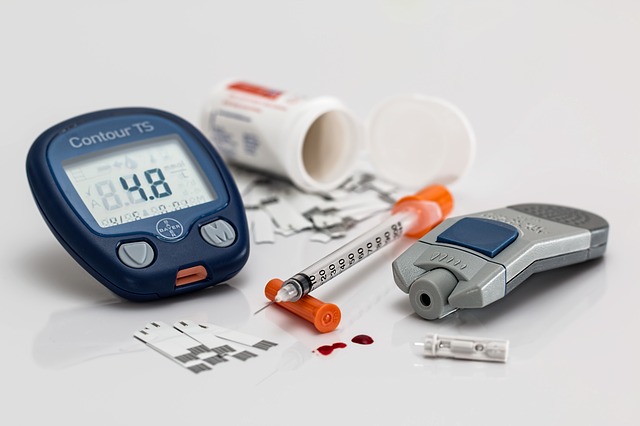A new study determined if organoids generated by combining islet cells and human amniotic epithelial cells can be used as a viable cell-based therapy for type 1 diabetes.
Cell-based therapy for type 1 diabetes is a new treatment strategy that is showing promising results. Type 1 diabetes is a chronic disease that can develop early in life. The disease involves the destruction of pancreatic beta cells by the body’s auto-immune response resulting in insufficient insulin production to regulate blood glucose. If left untreated, this condition can lead to serious long-term effects such as neuropathy, retinopathy, and renal failure. Insulin therapy is the current standard of care treatment of type 1 diabetes. However, insulin therapy cannot fully prevent the long-term complications associated with type 1 diabetes.
Using organoids as a therapeutic tool for diabetes
Organoids are tiny, three-dimensional tissue cultures that are derived from stem cells. Organoids can be created to replicate the complexity of an organ or they can be crafted to express selected aspects of an organ such as producing only certain types of cells.
Researchers have created organoids that differentiate into insulin-producing pancreatic cells. These modified insulin-producing cells successfully regulated blood glucose levels when implanted in diabetic mice.
Islet cell transplantation for treating diabetes
The cluster of cells in the pancreas that produce insulin is known as islets. Islet cell transplantation is a powerful tool to treat type 1 diabetes. Many studies have shown how this cell therapy could be effective in the treatment of diabetes if long-term control of glucose levels can be achieved.
Researchers have faced challenges in this treatment strategy due to loss of islet cells after the transplantation. The loss of cells occurs mainly because of inflammation of the transplant site and revascularization of cells that disrupts blood and oxygen supply leading to cell death. Scientists are looking for new strategies that can prevent the loss of islet cells and improve clinical islet transplantation outcomes.
Researchers engineered insulin-producing organoids from islet and human amniotic epithelial cells
Amniotic epithelial cells are stem cells that have a high proliferative capacity, self-renewal ability, multilineage differentiation, ease of access, and are safe for transplantation. During the last few years, human amniotic epithelial cells have been of great interest to researchers working on regenerative medicine.
In a new study recently published in Nature Communications, researchers from Geneva, Switzerland, engineered viable and functional insulin-producing organoids by combining human amniotic epithelial cells and dissociated islet cells. The researchers tested if inclusion of human amniotic epithelial cells enhanced the engraftment and viability of islet cells and determined if this cell-therapy for type 1 diabetes was successful in mouse models. Various tests such as insulin expression, insulin secretion, and stability under hypoxic conditions were used to test the viability of the organoids.
Engineered organoids maintained function after transplant
The organoids composed of human amniotic epithelial cells and islet cells did not experience any islet loss post transplantation. The researchers observed a clear protective effect of amniotic epithelial cells on islet cells in conditions of hypoxia. In addition, the organoids maintained responsiveness to glucose and showed significant protection from cell death.
Transplantation of islet organoids resulted in improved glucose regulation
The researchers found that islet organoids enriched with human amniotic epithelial cells resulted in mass engraftment of insulin producing beta cells thus improving function of these cells. Compared with islet cell organoids not combined with amniotic epithelial cells, the organoids with islet cells and amniotic epithelial cell combination normalized the blood glucose levels in diabetic mice. This suggests that there was adequate blood glucose regulation achieved by these engineered organoids.
Potential of cell-based therapy for type 1 diabetes
These findings show that combining islet cells with human amniotic epithelial cells markedly improves their functionality and viability of islet cells. It also helps in the successful engraftment of islet cells. This cell therapy for type 1 diabetes has the potential to be the next treatment strategy for this condition.
The researchers express the need to further explore the use of these organoids to include more favorable implantation sites and expanding to the use of stem cells that are an unlimited source of insulin.
Written by Preeti Paul, M.Sc.
Reference: Fanny Lebreton et al., Insulin producing organoids engineered from islet and amniotic epithelial cells to treat diabetes. Nature Communications 10, Article number: 4491 (2019)
Image by Steve Buissinne from Pixabay



